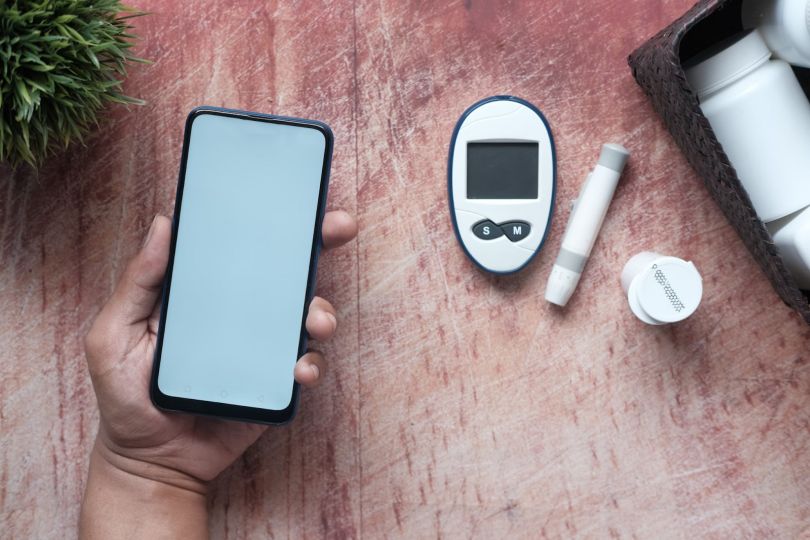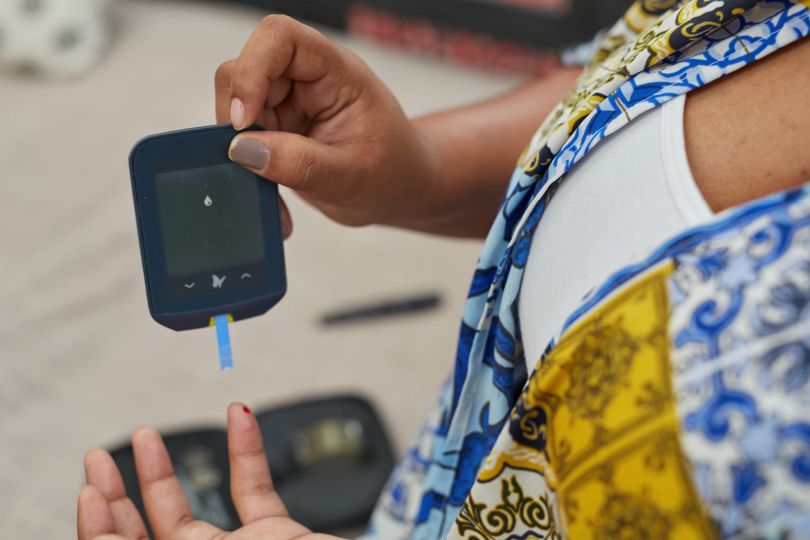How to Navigate Life with Diabetes: Practical Insights

Navigating life with diabetes isn’t about simply managing a medical condition—it’s about embracing a lifestyle that prioritizes your well-being at every turn. This journey may seem complicated but with practical insights and proactive strategies, it’s entirely possible to lead a fulfilling life without being defined by your diagnosis. A lot of people believe that a diabetes diagnosis must mean giving up on all the things they love. But that’s not entirely true. There’s no reason to be bogged down by the overwhelming feelings of fear and worry when you can take charge and learn how to navigate life with diabetes. If you are wondering how you can achieve this, read on to discover some practical insights that can help you lead a happier and healthier life.
Embrace a Balanced Diet
Incorporating a balanced and nutritious diet is crucial for managing diabetes effectively. This doesn’t necessarily mean you have to relinquish all your favorite foods. Instead, it’s about understanding your body’s nutritional needs and making mindful food choices. A diet rich in whole grains, lean proteins, fruits, and vegetables can help regulate blood sugar levels. It’s advisable to work closely with a dietitian to create a meal plan that suits your taste preferences, lifestyle, and health goals. Remember, moderation is key, and occasional indulgence is perfectly fine.
A good idea if you are on the go is to keep some healthy snacks with you, such as nuts, fruits, or vegetables, to avoid unhealthy choices when hunger strikes. Pay attention to food labels and opt for low-carb, sugar-free, or high-fiber options whenever possible.
Stay Physically Active
Physical activity is an essential component of diabetes management. Regular exercise helps improve insulin sensitivity and lowers blood sugar levels. It’s also beneficial for managing weight, reducing stress, and boosting heart health. Aim for at least 30 minutes of moderate-intensity exercise, such as brisk walking, cycling, or swimming, at least five days a week. However, consult your healthcare provider before starting any exercise routine to ensure it’s safe for you.
On the other hand, it’s essential to listen to your body and take breaks when needed. Suppose you experience any unusual symptoms or feel unwell during exercise, such as dizziness, shortness of breath, or chest pain. In that case, stop immediately and seek medical attention.
Invest in Practical Diabetic Socks
Diabetic socks are a worthwhile investment for those navigating life with diabetes. These specially designed socks help prevent foot injuries, keep feet dry, and improve blood circulation. They are often seamless and non-elastic, reducing the risk of skin irritation or constriction. Some versions even have extra cushioning and are infused with antimicrobial agents to lower the risk of infections.
Remember, foot health is pivotal when living with diabetes, and these socks can be a practical aid in your daily routine. For example, when trying to find the right diabetic socks for men, look for ultra-soft and comfortable options that provide maximum protection and comfort. Having the right pair of socks can make a significant difference in preventing diabetic foot complications as well as ensuring comfort and stability throughout the day.
Regularly Monitor Blood Sugar Levels

Monitoring your blood sugar regularly is a vital aspect of managing diabetes. It provides valuable insights into how your blood sugar levels are affected by various factors like food, physical activity, medications, and stress. By monitoring frequently, you can prevent both hyperglycemia (high blood sugar) and hypoglycemia (low blood sugar), which can lead to severe complications. To get an accurate understanding of your blood sugar control, it’s crucial to take readings consistently, such as before meals and bedtime. Don’t forget to log your readings and discuss them with your healthcare provider during regular check-ups to make any necessary adjustments to your diabetes management plan. While traditional finger-prick testing is common, there are now various continuous glucose monitoring systems available that provide real-time data without constant pinpricks.
Educate Yourself and Seek Support
To effectively manage your diabetes diagnosis, it is crucial to have a comprehensive understanding of the condition. Educate yourself about its causes, risk factors, and treatment options. Equally important is recognizing how diabetes uniquely affects your body, as each person’s experience may differ. Familiarize yourself with the signs and symptoms of high and low blood sugar, enabling you to take prompt action when necessary.
Additionally, establishing a support system is vital. Whether it is family, friends, or a diabetes support group, surrounding yourself with individuals who comprehend your journey can offer both emotional and practical assistance when needed.
Manage Stress and Prioritize Mental Health

Living with diabetes can undoubtedly be overwhelming at times, leading to heightened stress levels and potential mental health concerns. It’s essential to recognize that mental well-being is equally as important as physical health in managing diabetes. Techniques such as mindfulness, meditation, or deep-breathing exercises can help reduce stress levels and positively impact blood sugar control. Engaging in activities that you enjoy can also serve as a stress-reducing strategy. This could be anything from reading a book to taking a walk in nature or spending time with loved ones. If you find your stress levels persistently high or if you’re struggling with feelings of anxiety or depression, it’s important to seek professional help. Mental health professionals can provide the necessary support and equip you with coping strategies tailored to your individual needs.
Regular Check-ups and Medication Management
Staying consistent with your medical appointments is essential when managing diabetes. Regular check-ups allow for the early detection of any potential complications and provide an opportunity to discuss any concerns or queries you may have with your healthcare provider. Medication management is another critical aspect, as diabetes often requires one or more medications to maintain blood sugar control. Be sure to take your medication as advised by your doctor, and never hesitate to bring up any side effects or issues you may be experiencing. It’s important to remember that each person’s journey with diabetes is unique, and what works for one might not work for another. Hence, open communication with your healthcare provider is key to developing a personalized management plan that caters to your needs.
Managing diabetes is about adjusting to a new lifestyle, one that prioritizes your well-being and encourages healthier choices. It may seem complicated initially, but with practical insights, proactive strategies, and patience, it is entirely achievable. Remember, a diagnosis of diabetes doesn’t define you. It’s merely a part of your journey, one that can be navigated successfully with the right approach and perspective. Keep learning, stay proactive about your health, maintain a balanced diet, and make physical activity a regular part of your life. Don’t forget to monitor your blood sugar levels regularly and keep up with your medical appointments. And most importantly, ensure to prioritize your mental health and seek support when needed. You are more than your diabetes, and with these effective measures, you can lead a fulfilling life while managing your diabetes with confidence and ease.
